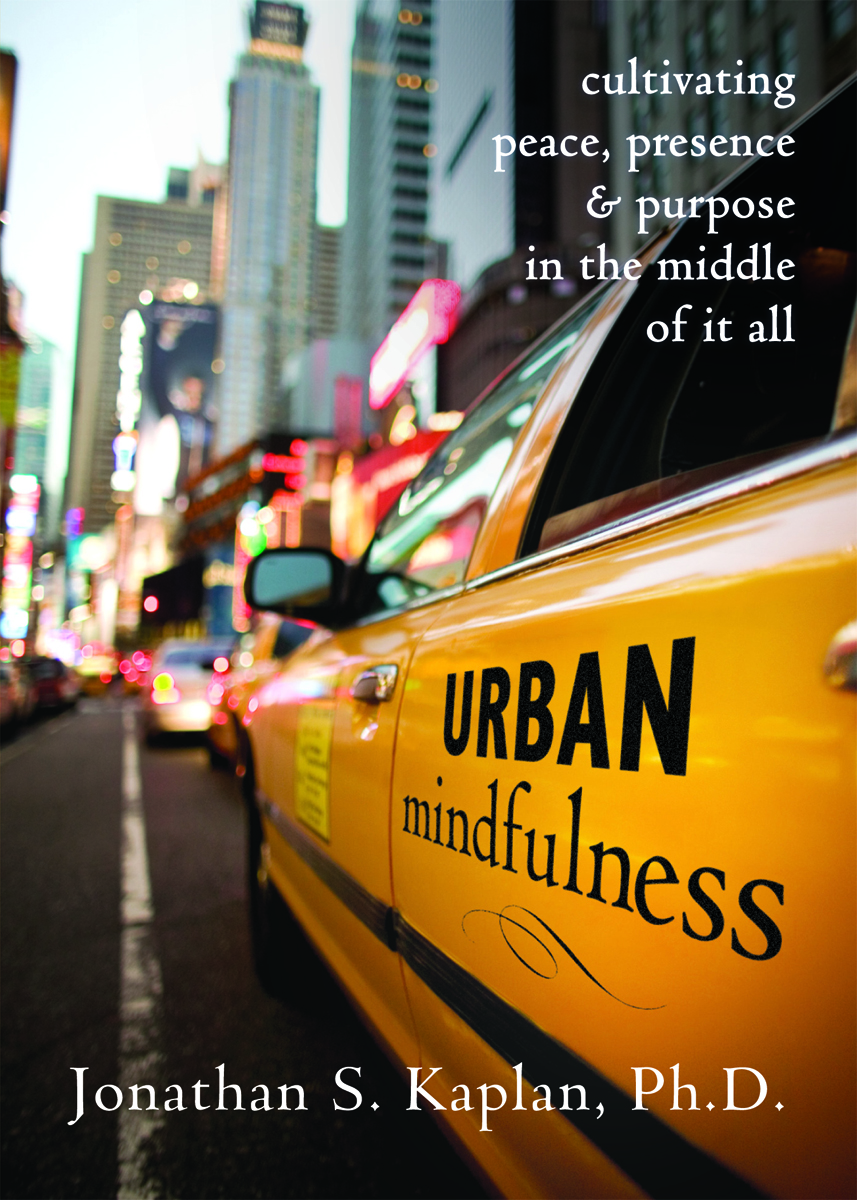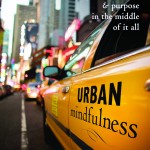Wednesday
Nov242010
Being Present When Buying Presents
 Wednesday, November 24, 2010 at 09:02PM
Wednesday, November 24, 2010 at 09:02PM  By Jonathan Kaplan, Ph.D.
By Jonathan Kaplan, Ph.D.It's that time of year again. I see signs of it everywhere, and the "big event" is almost here. You know what I'm talking about: Black Friday! Maybe you thought I meant Thanksgiving, and the wonderful opportunities to express appreciation to ourselves and others in celebration of the holiday. But no. Here in NYC, I see more signs and announcements about the upcoming shopping deals than anything about Thanksgiving. So, rather than talk about gratitude, I thought that I would talk about shopping. Mindfulness is about accepting what is, you know. However, if you would like to read about the power of gratitude, you can check out my post from last year.
So, how can mindfulness and shopping go together? Isn't there something antithetical about them? If we're mindful, aren't we supposed to not want anything?
In a strict sense, mindfulness isn't really about content at all. It's more about process. That is, how do we relate to what arises, whether it's a physical pain, an interaction with a friend, or an incredibly low price on a 52" flatscreen TV? Are we aware of our own reactions physically, mentally, and emotionally? By developing some insight into these things, we have more freedom. We're not beholden to our automatic ways of being in the world or stumbling through on automatic pilot. So, for example, we might not get swept up into buying something we don’t need, simply because it’s a good deal.
In bringing mindfulness to shopping, we can consider this process before, during, and after we make our purchase.
Before Shopping
As you think about going shopping (whether on Black Friday or any other time), what reactions do you have? Do you look forward to the experience? Do you angrily predict crowds of pushy people? Do you condemn the consumerism seemingly rampant in our culture? Do you smile as you consider what kind of presents would make my friends and family happy? None of these reactions are better than any other (even though the last one sounds nicest, yeah?). Rather, they all represent a judgment on the experience of shopping, which you're not even doing yet. They're evaluations about some future event that has yet to occur. Whether they are correct or incorrect is not the point. Instead, it is a matter of noticing how your mind has gone into its time machine yet again, and you're dragging this anticipated future into the present moment. As you do so, what becomes our emotional reality? Is there something that is actually happening now that might be worthy of our attention? If so, simply note what judgments that arise about shopping and return your attention to whatever is present right now.
TIP: Although it's not a mindfulness exercise per se, I do think it's helpful to imagine what our intended recipients would enjoy as a gift. Take a few moments to consider what you know about them, and then see what ideas come to mind. It might not be anything too grandiose (Uncle Ron is such an avid spelunker!), but simply an expressed interest or personality quirk. Perhaps something in this vein would be appropriate? Generating some understanding of our recipients beforehand can help guide us in making more judicious purchases.
While Shopping
There's a lot to notice when we're shopping. If we're on-line, we can notice how we go about making shopping decisions. Do we already know what we want? Are we attracted by price? On-line reviews? The technical descriptions of the product? How we anticipate the recipients would react to such a gift?
If we're in the store, there's a lot more stimuli. We can notice the people around us, the merchandise, and our own behavior as we consider various items. I write about this process in more detail in my latest book, but we often can touch and play with the items that we might buy.
Regretfully, many of us are suffering economically during these harsh times. And, we can bring mindfulness to this painful reality, too. How do we relate to our restricted budgets? Do we feel guilty or ashamed over not being able to afford to spend as much we did in previous years? Are we stressed as we consider how to negotiate these lean times with the recipients of our gifts?
Afterwards
After we've done our shopping, how do we relate to what we've bought? Are we excited? Embarrassed? Noncommittal? If you’ve scored a fabulous deal or found the ultimate gift for one of your loved ones, please take some time to savor this experience. Don’t just skip to the next thing on your list. Allow yourself to enjoy how you feel.
If you missed out, you can become aware of how that feels, too. You might not want to do so, but we can’t just be mindful of the pleasant things sometimes. Of course, if you’re looking for some way to feel better, consider how you feel now about something that you “totally scored” last year. Most likely, there has been a newer, more stylish, or better functioning model released over the past year. Do you still react to having that original purchase with as much adoration as you did before? Do you find yourself wanting to get the new, improved version? What does this tell you about our desires, even when we get what we want?
Of course, if you did get a really nice TV and you find yourself feeling somewhat empty about your purchase, I’d be happy to relieve you of any ill feelings. I’ll come by and pick it up tomorrow. < smile >
tagged  Black Friday,
Black Friday,  bargains,
bargains,  consumerism,
consumerism,  deals,
deals,  shopping in
shopping in  Awareness
Awareness
 Black Friday,
Black Friday,  bargains,
bargains,  consumerism,
consumerism,  deals,
deals,  shopping in
shopping in  Awareness
Awareness 




